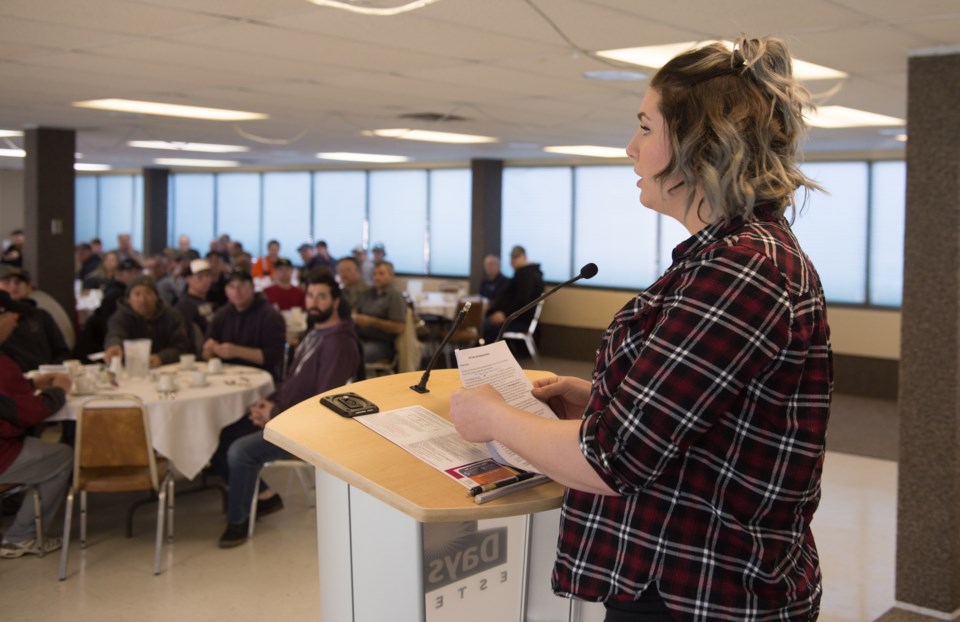Estevan – It’s a message that’s been reinforced every year for 29 years for dirtmovers across Saskatchewan. While the wording may vary, the message is always the same: “Dig safe.”
The Saskatchewan Common Ground Alliance (SCGA) held its annual contractor safety breakfast in Estevan on April 4. It was one of a series of 23 similar breakfasts held across the province this spring, as has happened every spring for nearly three decades. For the last 10 years, SCGA had hosted the events, and prior to that, they were put on by the provincial Crown corporations utilities.
That’s according to Sally Cain, executive director of the SCGA, who was in attendance at the Estevan event.
Over 100 people attended the breakfast at the Beefeater Plaza, which was sponsored by 16 contributing utilities. It‚Äôs part of April –°¿∂ ”∆µ Safe Digging Month in Saskatchewan, which it timed for the beginning of the summer construction season.
Cain said front line workers, contractors, owners of small companies and excavators were present.
The contractors breakfasts have been “fabulously successful,” according to Cain, who added 3,000 to 5,000 people attend each year.
There are now 84 entities that are part of the Saskatchewan 1st Call system, which the SCGA was promoting. The ides is to call the 1st Call before you dig. Line locate requests require two full working days notice prior to work beginning.
Among the members of the Sask 1st Call are Enbridge Pipeline, Inc., Tundra Energy Marketing Ltd., Kinder Morgan, Plains Midstream, SaskEnergy, SaskPower, SaskTel, TransCanada and TransGas.
While participation in the Sask 1st Call (, 1-866-828-4888) has grown over the years, it is not fully comprehensive. There are still some notable gaps, according to Cain. They include some telephone companies (other than SaskTel, which is a member), cable companies, rural municipalities and small towns. To that end, the SCGA is supporting Senate Bill S-229, which would require all owners of underground infrastructure nationwide become part of first call systems in their area. But until that happens, it is important to call all possible utilities that may exist on the site that are not part of the Sask 1st Call system.
There are still plenty of people who are not calling before they dig, however. Nation-wide, Cain said 43 per cent of these type of accidents were cases where those responsible didn’t call the local first call service.
Kaleigh Knourek, a journeyperson pipeline operator with Kinder Morgan locally, was the master of ceremonies for the breakfast. She spoke about the white flag and white line program. When an excavation or ground disturbance is planned, marking out the area with white flags at the corners, then painting white lines at the perimeter (or black line, if on snow) of the work area allows line locators to limit their efforts to the area involved, as opposed to covering the entire property needlessly.
There’s no charge for a line locate for the member companies of Sask 1st Call, however, as one of the videos played for the attendees pointed out, there is a charge to locate private lines. An example might be a power line from a house to a shop, for instance.
Cain mentioned how the Sask 1st Call website allows you to mark out the proposed work area on a Google Map, providing a much more precise area for the line locators.
“Our message is to dig safe,” Knourek told those attending the breakfast.




